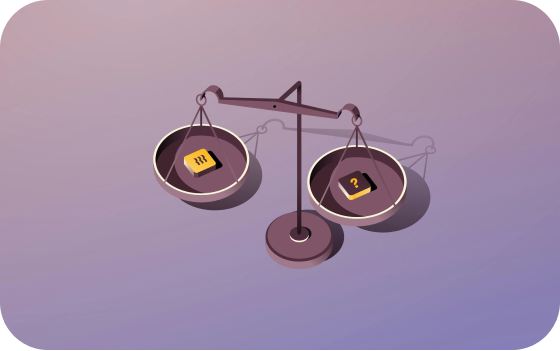The National Employment Standards (NES) are a set of 11 minimum employment entitlements Australian employers must provide employees within the national workplace system. Governed by the Fair Work Act 2009, these standards establish the baseline terms to ensure fair working conditions across all industries.
Fundamental employee entitlements according to the National Employment Standards
The list of minimum standards includes:
- Maximum weekly hours of work: Under the NES, a full-time employee's workweek cannot exceed 38 hours. If an employee is required to work additional hours, the request must be reasonable and mutually agreed upon by both the employee and employer. Overtime rates may vary across different industries.
- Requests for flexible working arrangements: NES enables certain employees—such as those who have worked for at least 12 months with an employer—to request a flexible working arrangement. This could include changes in ordinary hours of work or working locations and must be based on an employee's individual circumstances.
- Parental leave (and related leave entitlements, including adoption-related leave): NES guarantees up to 12 months of unpaid parental leave to employees who have been employed for at least one year and are expected to return to work and remain employed on a regular basis. Employees are also entitled to request an additional 12 months of unpaid parental leave based on their individual circumstances.
- Annual leave: Full-time and part-time employees are entitled to four weeks of paid annual leave each year. Annual leave is accrued based on hours worked throughout the year and can be carried over to the following year if not used. In some industries, shift workers may be entitled to an additional week based on the nature of their job.
- Personal/carer's, compassionate, and family and domestic violence leave: Permanent employees are entitled to ten days paid personal leave yearly, while casual employers receive two. Also, permanent employees receive two days per occasion of paid compassionate leave yearly; casual employees are entitled to two days of unpaid leave. Both permanent and casual employees are entitled to five days of unpaid family and domestic violence leave.
- Community service leave: NES guarantees unpaid leave for voluntary emergency activities and jury services. Employees may also be entitled to compensation (make-up pay) for lost wages while on jury duty - usually up to ten 10 days.
- Long service leave: Different entitlements apply in different states of Australia. For instance, employees in Queensland are entitled to 8.6667 weeks of paid long service after ten years of continuous service to an employer.
- Public holidays: Permanent, full-time employees are entitled to paid days off for public holidays on days when they would regularly work. If there is a just reason an employee should work on a public holiday, overtime pay rates apply.
- Notice of termination and redundancy pay: Based on the employee's length of service, an employer must provide up to five weeks' written notice of termination or payment in lieu and up to 16 weeks' severance pay on redundancy. This rule may not apply to small business owners or employers under industry-specific redundancy schemes.
- Provision of a Fair Work Information Statement: Employers are required to inform all new employees about NES, the right to freedom of association, moderna awards, individual flexibility arrangements, termination of employment, and the roles of the Fair Work Ombudsman and Fair Work Commission.
Casual conversion: Employers are also required to provide a Casual Employment Information Statement (CEIS) to casual employees before or soon after they start working. The CEIS outlines the entitlements of casual employees, including procedures/circumstances for converting from casual to regular employees.
What is the purpose of the National Employment Standards?
The National Employment Standards serve as a safety net, ensuring that every employee in Australia, regardless of the industry or job type, works in fair conditions and has their rights protected. The NES entitlements and the national minimum wage establish fundamental employment protections that apply to all national system employees.
Who does the NES cover?
The NES covers all full-time and part-time employees in the national workplace relations system, regardless of modern awards, enterprise agreements, or employment contracts applied.
Given that the application of the NES commenced on 1 January 2010, if any agreement made before that period excluded or didn't cover the minimum entitlements outlined in the NES, those terms were considered invalid, as all national system employees must receive at least fundamental entitlements defined under the National Employment Standards.
The National Employment Standards for casual employees
The NES covers casual employees. However, they don't have access to all the entitlements full-time and part-time employees have. Casual employees are entitled to:
- Unpaid carer's leave
- Unpaid family and domestic violence leave
- Unpaid compassionate leave
- Unpaid community service leave
- Fair Work Information Statement and Casual Employment Information Statement
- Casual conversion
Casual employees may be eligible for long service leave depending on their working location. In Queensland, for instance, casual employees are entitled to long service leave after ten years of continuous service.
Also, if a casual employee has been employed on a regular and systematic basis within the last 12-month period and is expected to continue working with an employer, they may be entitled to:
- Flexible working arrangements
- Unpaid parental leave (and related entitlements)
It is critical to understand that employing someone as a casual employee when they should have been employed on a permanent basis just to reduce NES obligations is illegal.
What happens if NES rights are violated?
Employees who suspect their NES rights have been violated should discuss it with their employer first. If an employer doesn't take the necessary steps to resolve the issue, an employee has the right to file a claim with the Fair Work Ombudsman—an independent body responsible for investigating complaints, mediating disputes, and taking legal action when necessary.
As a result, employers who fail to comply with the NES may face legal action, resulting in severe penalties and other legal consequences, and must compensate affected employees.
Recent Updates to the National Employment Standards
Significant changes under the NES have been made regarding casual employees. First, the criteria for casual conversion have been established—casuals now know what it takes to advance from casual to part-time and full-time employees. Employers are required to offer conversion to casual employees once they meet the set criteria.
Another change occurred around modern awards, covering everything from minimum pay to overtime and penalty rates, ensuring employees across industries are paid fairly for their work. In 2024, several industry-specific awards were adjusted to reflect changes in the minimum wage, which resulted from rising living costs.
FAQs about the NES
How does the National Employment Standards affect workplace contracts and agreements?
Employment contracts, modern awards, and enterprise agreements must comply with the NES. Employers cannot offer terms below the NES minimum entitlements. If a contract or agreement includes terms below the minimum standards, those terms are considered unenforceable.
Employees can negotiate additional benefits beyond the National Employment Standards. However, these new terms cannot reduce or remove NES entitlements.
Is superannuation a NES Entitlement?
Yes, superannuation is an entitlement under the National Employment Standards. If an employer doesn't offer superannuation—and the Australian Taxation Office (ATO) hasn't already taken action—most employees covered by the NES can take court action to recover unpaid superannuation.
Rippling and its affiliates do not provide tax, legal, or accounting advice. This material has been prepared for informational purposes only, and is not intended to provide, and should not be relied on for, tax, legal, or accounting advice. You should consult your own tax, legal, and accounting advisors before engaging in any related activities or transactions.












































































